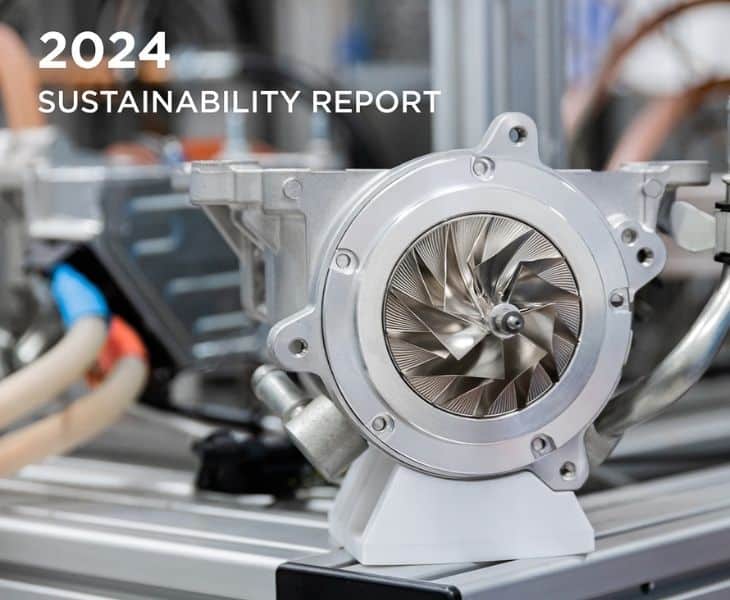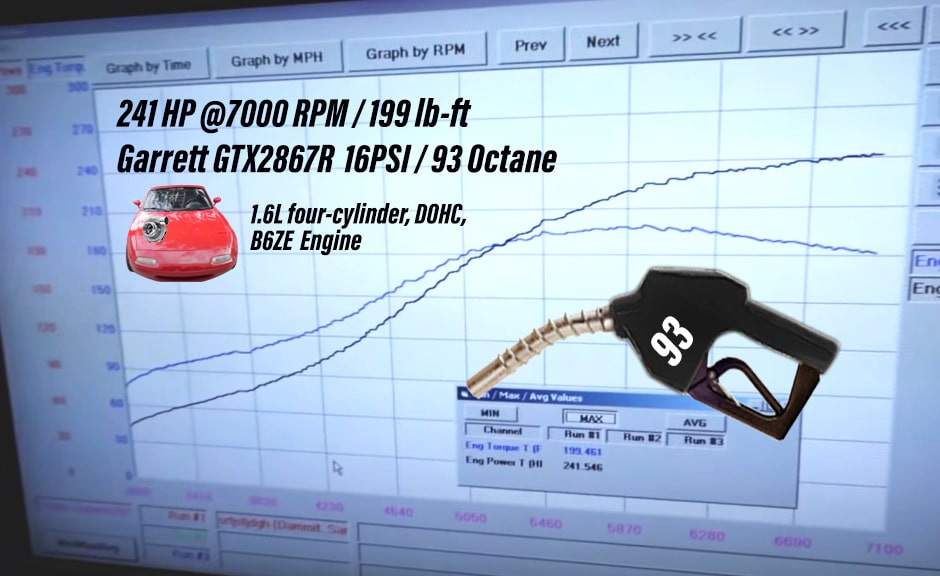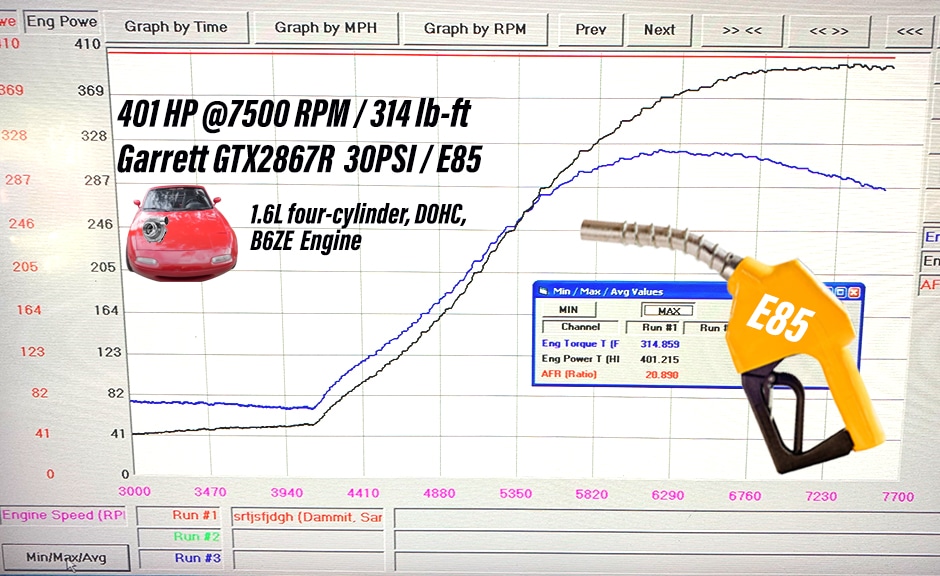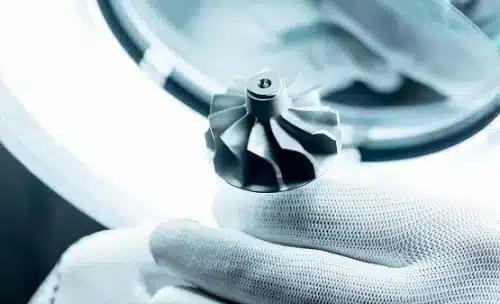Pump Gas Vs E85: Tunable Performance For Your Turbo
Pump Gas vs E85 tunes
You’ve probably heard about the benefits of using E85 for your performance vehicle and how you can make more power using it, but do you know why? Have you seen a real example of E85 compared to Pump gas on the dyno? Sammit’s YouTube channel recently built a Mazda Miata with a forged 1.6L engine and spent multiple days on the dyno at HP Logic with Jack Cecil dialing in the tune for pump gas and for E85. This test was performed on the same car, same engine, same tuner, and same turbo combination (GTX2867R Gen II) and the results tell an interesting tale about how fuel impacts tunable performance. Notice we said tunable performance because adding E85 without recalibration of the ECU will not increase performance at all. So, how much more power can you make with the same engine setup between pump gas and E85?
What is E85
E85 is a blend of fuel that combines 85 percent ethanol with 15 percent gasoline. In the US there are also Flex Fuel pumps but the ethanol content of those pumps can vary from 50-80 percent depending on the season. Ethanol has a higher threshold to detonation meaning the air/fuel mixture is less likely to ignite before the spark. Ethanol also has a higher thermal efficiency meaning when it does ignite, the temperature of the combustion is lower compared to pump gas. This allows a turbocharged engine to take more boost within a safe operating range without damaging the engine. Although E85 does not have an octane rating, it can be compared to 105 octane pump gas.
There is a downside to E85 though. The engine consumes up to 30 percent more fuel volume at high engine RPMs compared to gasoline so larger fuel injectors and a high capacity fuel pump will also be needed, and potentially larger diameter fuel lines. Pretty much any gasoline engine can be converted to use E85 but this write up will not cover that. What we will cover below is how much more power you can make on the same setup between pump gas and E85.
Engine Specs:
Engine: B6ZE 1.6L, 16 valve, four-cylinder, dual overhead cam engine, 8.5:1 compression
Forged Internals: Manley Rods, Wiseco Pistons, King Race Bearings, ARP
Turbo: GTX2867R Gen II (50mm compressor wheel inducer, 54mm turbine wheel)
Turbine Housing: .72 A/R V-band
The following tests were performed on a Mustang Dyno by Jack Cecil at HP Logic in Royal Palm Beach, FL
Pump Gas Tune: 93 octane 241hp / 199tq @7000 RPM 16PSI is the most the car made safely on pump gas
E85 Max Power Tune: 401hp @ 7500RPM / 314 lb-ft 30PSI on E85 (100°F Ambient Temp)
Conclusion
Based on the results of the two dyno graph comparisons, you can see that with the same engine, tuner, and turbo combination this 1.6L engine saw a 34 percent increase in tunable power when using E85 fuel. This is a great case study on the main benefit of E85 as a fuel source when compared to pump gas. If you are in an area where E85 pumps are plentiful, this may be a great option for you. Special thanks to Sammit and Jack Cecil for taking the time to document this build. Please make sure to follow them on social media for more projects and updates.












